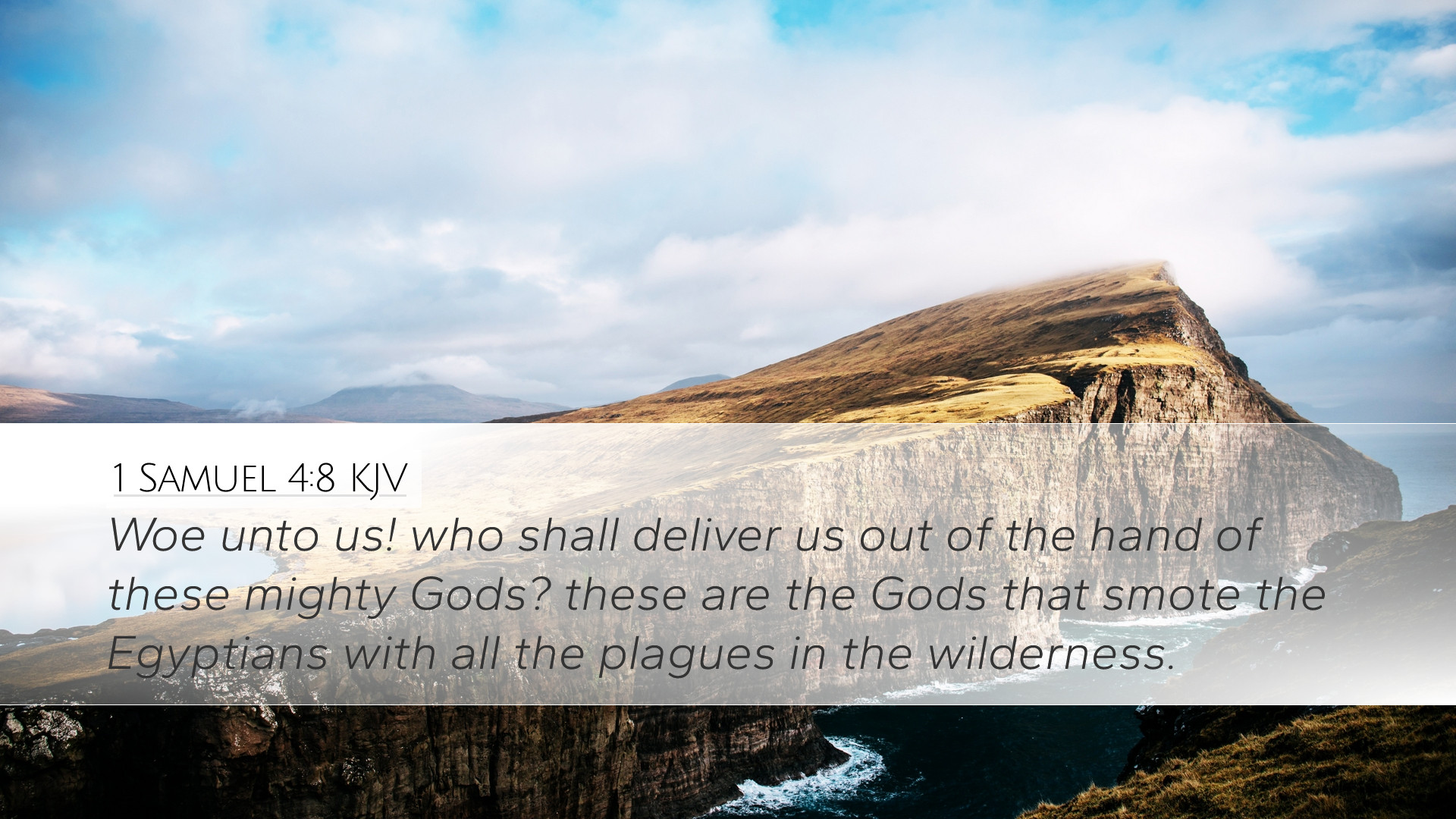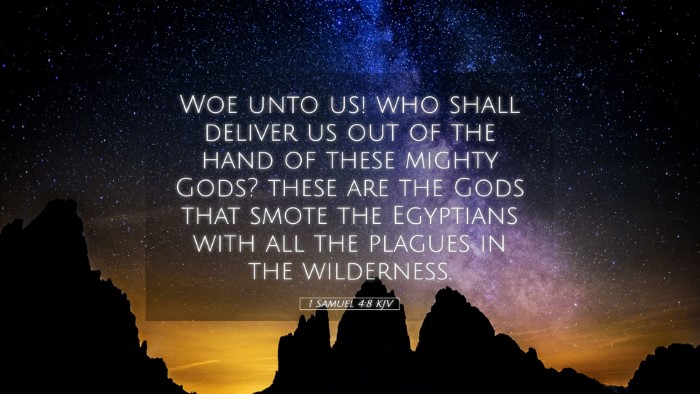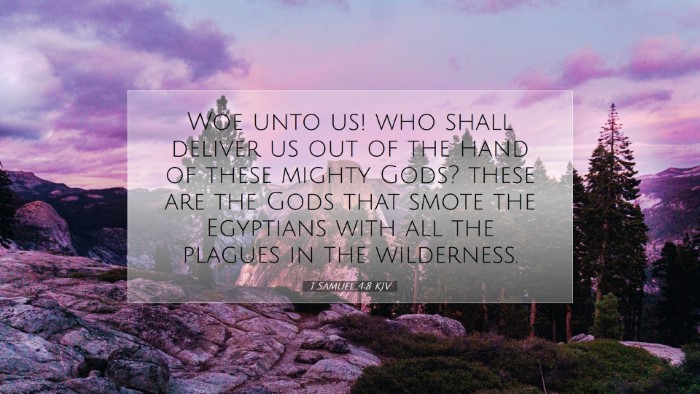Commentary on 1 Samuel 4:8
Verse Context: 1 Samuel 4:8 states, "Woe unto us! who shall deliver us out of the hand of these mighty gods? these are the gods that smote the Egyptians with all the plagues in the wilderness." This verse captures a pivotal moment in Israel's history, illustrating a deep sense of fear and recognition of divine power among the Philistines.
Introduction
This commentary will explore the implications of 1 Samuel 4:8, drawing from the insights of esteemed commentators such as Matthew Henry, Albert Barnes, and Adam Clarke. Their perspectives help illuminate the theological themes and historical context surrounding this verse.
Theological Insights
Mighty Gods Recognized: The Philistines, upon hearing of the approaching Israelites with the Ark of the Covenant, recognize the power of the God of Israel, acknowledging Him not just as a deity but one whose might historically demonstrated through the plagues against Egypt. They refer to Him as "mighty gods," reflecting their polytheistic background and understanding of the divine.
- Fear of Defeat: Matthew Henry notes that the Philistines' fear indicates an awareness of the overwhelming strength that God demonstrated through His past actions. Their cry signals an understanding of the stakes involved in their confrontation with Israel.
- Divine Deliverance: Albert Barnes emphasizes that in exclaiming “who shall deliver us,” the Philistines exhibit a desperate plea for guidance, revealing not only their dread but also their understanding of a God who intervenes decisively in human affairs.
Historical Context
The history of Israel’s relationship with God during the period of the Judges sets the stage for this encounter. The Ark of the Covenant was a symbol of God’s presence among His people, and the Philistines' recognition of it denotes a significant acknowledgment of Israel's God and His power.
- Previous Confrontations: Adam Clarke points out that the Philistines had previously encountered Israel in battle, and although the Israelites were initially defeated, it was their understanding that the God of Israel had allowed them success, thus prompting their fear at the mention of the Ark.
- Historical Reflections: The Philistines recall the plagues of Egypt, realizing that Israel’s God could bring calamity upon them if they were not careful. This reflection underscores the terror of facing a God capable of such marvels.
Divine Sovereignty and Human Response
The dialogue within the verse reflects a crucial truth about divine sovereignty: God cannot be manipulated or ignored. The reaction of the Philistines shows a fundamental misunderstanding of God’s nature, trying to engage with the idea of Israel’s God as one of many.
- Superstitious Understanding: Matthew Henry underscores that the Philistines viewed Israel's God through the prism of superstition rather than genuine reverence.
- Human Fear vs. Divine Plan: Albert Barnes contrasts their fear with God’s larger plan for Israel and shows that even amidst their dread, this acknowledgment led to a deeper confrontation between the two nations.
The Role of Leadership in Crisis
The immediate context of the verse reveals how leadership impacts collective psychology during crises. The Philistines’ leaders must confront their panic, which suggests that how they respond will set the tone for their army's morale.
- Leadership Influence: Clarke reflects on the critical role of leadership in interpreting the moment. The fear expressed here would inevitably galvanize the Philistine leaders to take action, highlighting the power dynamics at play.
- Strategic Decisions: They contemplated the presence of the Ark and its implications for battle strategy, realizing they are in a religious war as much as a military one.
Modern Applications
The implications of 1 Samuel 4:8 extend into contemporary contexts for pastors and theologians, serving as a reminder of the transcendent nature of God over earthly powers.
- Worship and Reverence: This verse can prompt reflection on how modern believers perceive God's sovereignty amidst adversity, echoing the Philistines’ acknowledgment of God’s might.
- Understanding Fear: The dynamic of fear can lead congregations to seek clarity and resilience in faith, inspiring thoughtful leadership when facing trials.
Conclusion
1 Samuel 4:8 serves as a rich text for understanding the intersection of fear, faith, and recognition of divine power. The historical context enriches its meaning, demonstrating that even the adversaries of Israel recognized the force of God’s actions in history. For today’s churches and theological discussions, this verse reminds believers of the weight of spiritual realities in their lives.


